January 7
Breakfast at the hotel with Kipharts, Olopades and Joe and Daniel Kwarteng evolves into an interesting discussion of challenges for pineapple farm and potential solutions. A good deal of the discussion revolves around difficulties in finding a sufficient number of people willing to do the very hard, grueling work. This stems in part from the disfavor young people hold agriculture in. It lacks the pizzaz of other fields and does not hold the promise of big rewards quickly. The best worker on the farm is a deaf man who graduated from The Cape Coast School for the Deaf, an institution that Joe Kwarteng and his wife, Ida, and the Kipharts have supported and which we have visited several times. They plan to actively recruit more deaf graduates. It’s also clear from their experience that women are more willing workers than men. Most of the women have young children, many more than one, so child care is an issue.
We set out with the Kipharts and Olopades on the short drive to he pineapple farm, which is a private for-profit venture of Dick and Joe Kwarteng, the former Dean of Agriculture at Cape Coast University. Begun about three years ago, the farm consists of several plots totaling about 2000 acres, of which around 450 are currently planted. The vast majority of the land is planted in pineapples, but recently they have devoted smaller plots to trying mangos and limes.
It’s always fun to visit the farm and see the progress that has been made. The large pineapple fields are quite beautiful, spread across hills and lower lands. We drive around to observe and hear about the plantings and meet some of the workers.

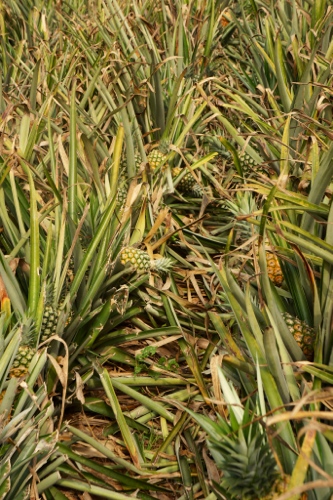
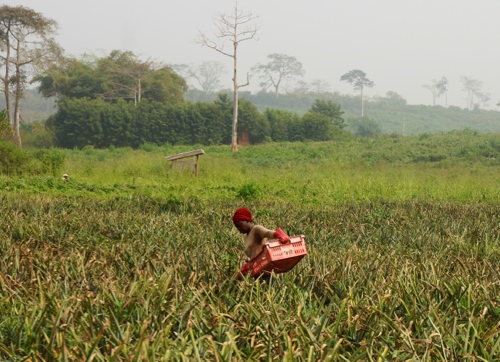
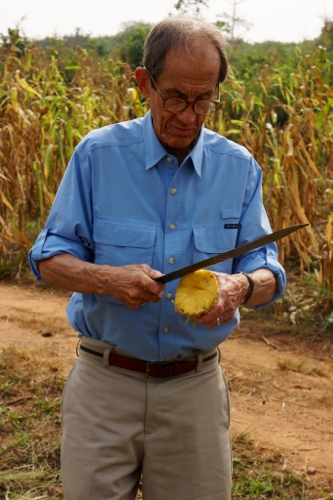
Dick cutting pineapple
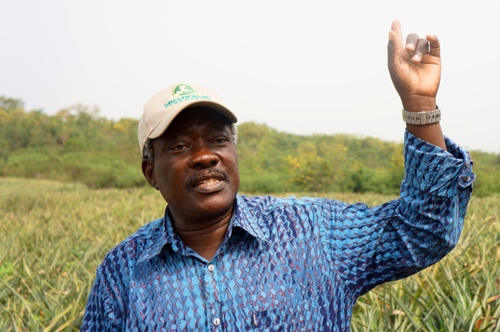
Joe Kwarteng
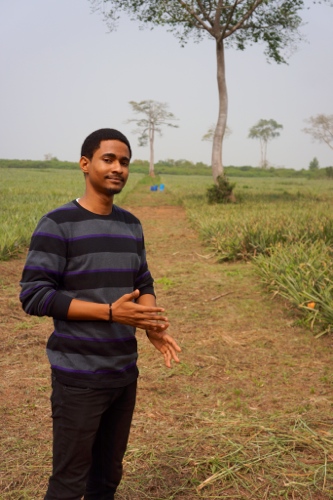
Daniel Kwarteng
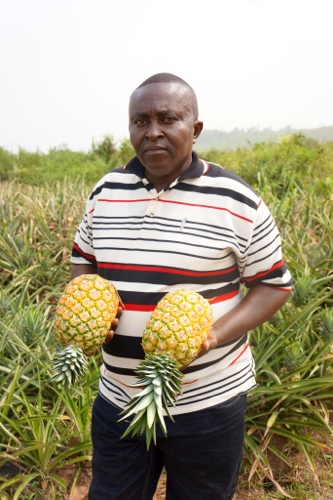
John, Field Manager
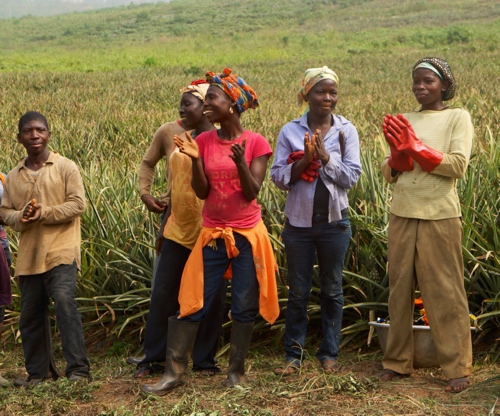
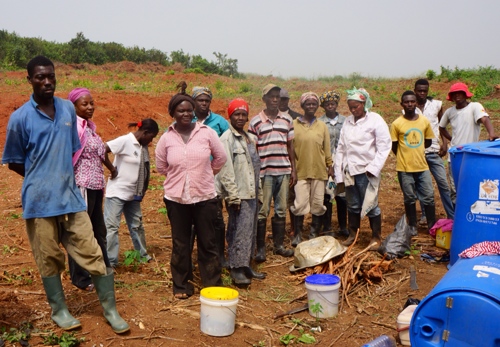
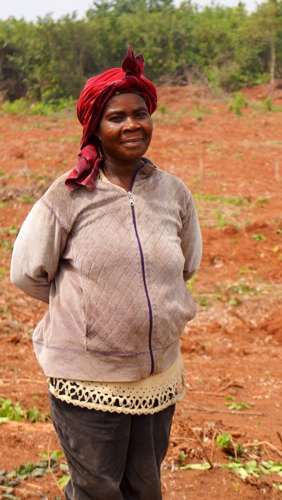
The overwhelming sense I’m left with is that it’s a hell of a long way from these fields to Whole Foods and that agriculture is definitely not for sissies. We hear all about the pitfalls that have befallen them in a short time. Too much rain. Too little rain. Fungus. Marketing difficulties and buyers falsely falsely claiming fruit delivered was bad. Many acres of plantings ruined by flooding caused by heavy rains. Plants maturing too quickly, requiring that they be sold locally (rather than overseas) at a low price. Timing of getting things to ships. Delays because of traffic. Delays in the packing house, causing them to miss a ship and therefor lose the crop (they’ve concluded that they need to build their own packing house, which will cost $500,000). Very hard work, planting, weeding and picking; long hours in the hot sun.
After a couple hours, we set off on the long drive (4 hours plus) to Kumasi, stopping for lunch at a very nice hotel/restaurant overlooking the sea, fanned continually by cool breezes. We complete the drive and arrive at The Four Villages Inn, our home in Kumasi, where Carol and I stay in the same room each time we come. We’re greeted by Frank, the son of the owners, Chris and Chastity, to whom we all express condolences at the very unexpected death of Chris in surgery in Canada less than a month ago. In less than half an hour, we’re settled into our rooms and are off to dinner at a Chinese Restaurant, with the Kwartengs and their two sons, Alex Eduful and several others. We’ll be spending tomorrow with Alex and his right hand man, Frank, visiting wells, so I’ll save the Eduful story for then.

Dadz,
I’ve been enjoying the morning, catching up on your blog over my coffee and Max’s cheerios. I’m getting as clear a sense for your adventures as I can get without being there. Thanks for keeping us close.
Love,
W.